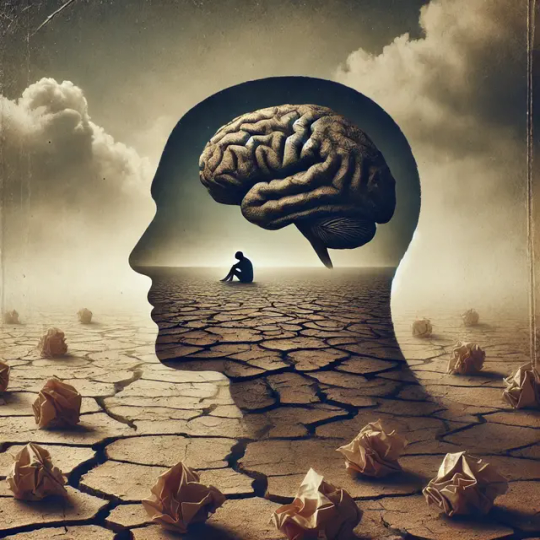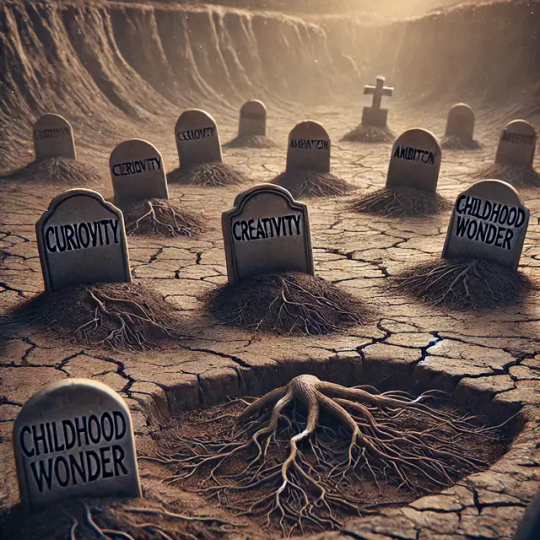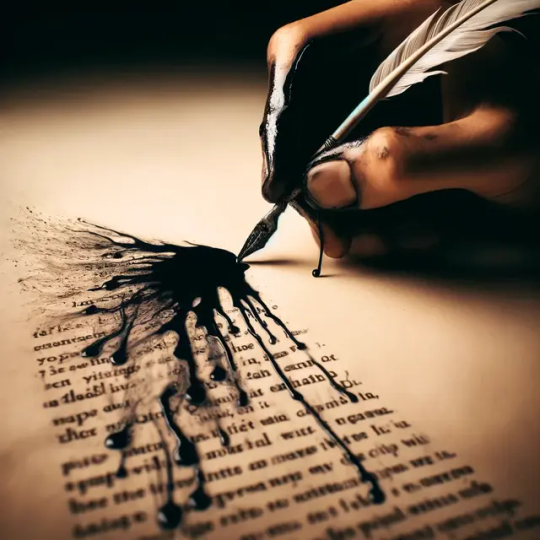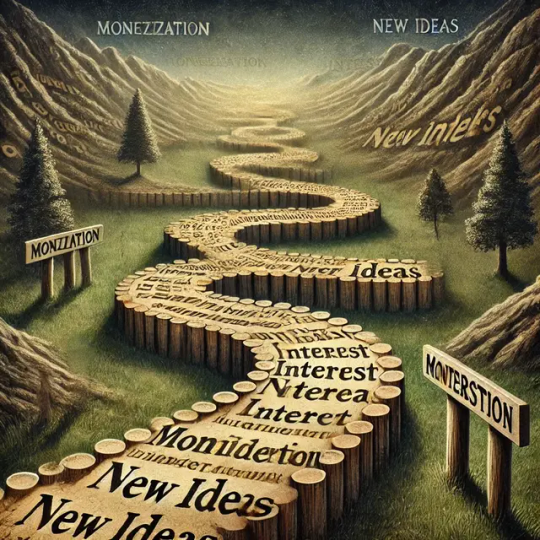#WritingStruggles
Explore tagged Tumblr posts
Text
"When writing a novel a writer should create living people; people not characters."
Good literature is a good observation of one's surroundings. Of the people around you and events that take place within your society.
Hemingway argues a fundamental point when creating characters that feel 'alive. ' It's not about what you want (as a writer) or where the story must go; it's about what the characters (people) would do if they truly existed at that moment.
Hemingway continues:
"A character is a caricature. If a writer can make people live, there may be no great characters in his book, but it is possible that his book will remain as a whole; as an entity; as a novel."
Hemingway emphasizes the importance of having people in your story, rather than characters, criticizing the latter as caricatured and exaggerated. He says: "If the people the writer is making talk of old masters; of music; of modern painting; of letters; or of science then they should talk of those subjects in the novel. If they do not talk of those subjects and the writer makes them talk of them he is a faker, and if he talks about them himself to show how much he knows then he is showing off."
Hemingway says your character shouldn't be a doll and you, the master. They should express themselves the way they want to. If you force it, you're faking it and risk creating a one-dimensional character. If a writer goes on and on about the character because he knows more than the reader, he's showboating his pretension and nothing else.
"No matter how good a phrase or a simile he may have if he puts it in where it is not absolutely necessary and irreplaceable he is spoiling his work for egotism."
He ends with:
"People in a novel, not skillfully constructed characters, must be projected from the writer’s assimilated experience, from his knowledge, from his head, from his heart and from all there is of him. If he ever has luck as well as seriousness and gets them out entire they will have more than one dimension and they will last a long time."
#writing#writers on tumblr#writingcommunity#tumblr writers#writerlife#writingjourney#writing tips#creative writing#writingstruggles#writeblr#writing quotes#ernest hemingway#writing characters#character writing
101 notes
·
View notes
Text
I cannot write in the stillness of life. My ink must be drawn from chaos And utter difficulty. The page must tremble in unsteady hands, While the lips quiver words of unrest — Truth lies in uneven lines. - Laura Chouette
#Poetry#PoetryCommunity#Literature#Writing#CreativeWriting#WritingInspiration#ExistentialPoetry#ChaosAndCreation#TruthInWriting#LiteraryArt#PoetryLovers#ModernPoetry#DeepThoughts#UnsettledMind#InkAndChaos#WritingProcess#TruthInLines#Poem#Verse#ArtOfWriting#UnfinishedThoughts#PoetryOfTheSoul#SpokenWord#PoeticExpression#HeartAndInk#WritingStruggles#PoetryIsLife#LiteraryWorld#BookLovers#ClassicLiterature
95 notes
·
View notes
Text
𝟐𝟎). 𝐖𝐚𝐲𝐬: 𝐖𝐫𝐢𝐭𝐢𝐧𝐠 𝐀𝐰𝐤𝐰𝐚𝐫𝐝/𝐔𝐧𝐜𝐨𝐦𝐟𝐨𝐭𝐚𝐛𝐥𝐞 𝐦𝐨𝐦𝐦𝐞𝐧𝐭𝐬
To anyone seeing this, hi! You can go ahead and reblog with your own tips on this; or just comment! Am an awkward person by nature; so these come naturally to me (bad or good thing? eh, who knows.)
1. Mistimed Compliments
A character tries to give a compliment but it comes out completely wrong, leaving the other person confused or offended. Example: "Your hair looks... better than usual."
2. Socially Unaware Responses
A character doesn’t pick up on obvious social cues and keeps talking or doing something when they should stop. Example: Continuing to tell a long, boring story (like no one wants to hear about your birdwatching sessions, Randy, god!)
3. Unintentional Insults
A character accidentally insults someone by mentioning something personal without realizing it. Example: Complimenting someone’s outfit, then adding “It’s much nicer than the last one you wore.”
4. Poorly Timed Jokes
The character makes a joke in a serious moment, only to be met with silence or awkward stares. Example: Cracking a joke at a funeral or during a heartfelt confession.
5. Physical Clumsiness
Characters tripping, bumping into things, or knocking over a drink while trying to act cool or confident. Example: Walking into a room full of people only to trip on the door frame.
6. Talking Over Someone
Two characters start talking at the same time, both trying to politely yield, and ending up in an awkward back-and-forth. Example: “Oh, sorry, you go—no, no, you first—um, okay—wait, sorry…”
7. Silent Pauses
Long, uncomfortable pauses in conversation where no one knows what to say next. Example: After revealing a huge secret, and no one responds, just complete silence. "....so what? don't just ignore me guys!"
8. Accidental Spills
A character accidentally spills something on someone in an important or formal setting. Example: Nervously fumbling with a glass of wine and spilling it all over someone’s fancy outfit at a party.
9. Misread Signals
A character misinterprets someone’s body language or signals, leading to an awkward encounter. Example: Going in for a hug when the other person was just reaching for something. (this has to be feared more than death itself, change my mind.)
10. Unwanted Physical Contact
The character gives an overenthusiastic handshake, hug, or pat on the back that clearly makes the other person uncomfortable. Example: A lingering handshake that lasts way too long, or a hug that becomes stiff and awkward.
11. Inappropriate Laughter
The character laughs at the wrong moment, only to realize that no one else finds it funny. Example: Laughing during a serious discussion or an emotional outburst. (THIS IS SO ME AM SORRY...not really)
12. Misunderstanding Conversations
Mishearing someone’s question or comment and replying with something completely unrelated. Example: "Hey, how's your day going?" "I'm listening to, Anaconda, by Nicki Minaj!"
13. Revealing Too Much
Oversharing personal or embarrassing information during small talk or casual conversation. Example: “Yeah, I had this weird rash last week, I swear thought it was like, ass cancer or something... but anyway, how’s your day going?”
14. Unwelcome Compliments
Giving a compliment that makes the other person feel awkward instead of flattered. Example: “You look so much better without makeup!”
15. Embarrassing Confessions
A character accidentally confesses to something embarrassing, thinking it was common knowledge. Example: “Oh, wait, you didn’t know I still wet the bed... uh, never mind.”
16. Interrupting at the Wrong Moment
A character walks into a room at exactly the wrong time, overhearing or interrupting something sensitive or intimate. Example: Walking in during a personal conversation and saying, “So, what are we talking about?”
17. Flubbed Introductions
A character completely forgets someone’s name or introduces two people incorrectly. Example: “This is, uh... sorry, what’s your name again?”
18. Unexpected Silence After a Comment
The character makes a bold statement or question, only to be met with an uncomfortable silence. Example: Asking if someone is pregnant, only to find out they’re not.
19. Forgetting Basic Social Norms
The character forgets to do something basic, like shaking hands, making eye contact, or saying “thank you,” leaving an awkward atmosphere. Example: Reaching out for a handshake and being left hanging.
20. Accidental Eavesdropping
The character overhears something personal or uncomfortable but doesn’t know how to politely excuse themselves. Example: Being stuck in a hallway overhearing an argument but can’t leave without being noticed.
#writers on tumblr#writerscommunity#black writers#writer stuff#my writing#writingstruggles#writing#female writers#writers and poets#creative writing#writingtips#writing things#writing tips#awkward#moments#and how to write
45 notes
·
View notes
Text
i come to tumblr for writing motivation. i dont know where the motivation goes when i close this app
#writers#fanfic authors#writeblr#writingstruggles#i have a hate and love relationship with my stories#struggles#writers on tumblr#writerscommunity#funny
20 notes
·
View notes
Text

And here I am, staring at a blank page, desperately trying to channel the magic of those ancient scripts, while my muse is probably off having a coffee and reading a self-help book.
#writerslife#writerproblems#writingstruggles#inspiration#muse#coffee#selfhelp#humor#sarcasm#writer#author#books#reading#booklr#writeblr#bookblr
2 notes
·
View notes
Text
Autumn dialogue tip: If your characters are talking like they’ve wandered out of a pumpkin-spiced Shakespearean drama, go back and let them sound like real people again.
#writing#writers#authors#fall#autumn#fall writing#fall vibes#autumn vibes#autumn writes#WriterLife#WritingHumor#AmWriting#WritersOfTumblr#WritingStruggles#FictionWriting#WriterProblems#CreativeWriting#WritingCommunity#WriterInspiration#autumn aesthetic
3 notes
·
View notes
Text
Is it worth posting my bkdk fantasy stuff to ao3?
#ao3#writing#fanfiction#send help#fanfic#fanficwriting#do i post my bkdk stuff#mha#bnha#writingstruggles#writer stuff
3 notes
·
View notes
Text
Climate Change
I remember when the writing first slowed. Reduced from a deluge to a dribble. I'd spent a lot of time then, brooding over how repetitive it felt and how stagnant I believed I had become. I'd read my old works over and over and over and over cringing at the banality... of those tried and overwrote tired and overwrought overthought words. How could I have known? How could I have ever guessed that all of the bodies... these corpses of curiosity and creativity, that I was burying in my mind, would ruin the soil of my imagination and leave my ideas infertile? I let my skies cloud with smog, paved over my rainforests with tar, and hunted my buffalo to extinction. "S'just writer's block" I said as I sang my own elegy. My motivation laid to rest in the family crypt, beside potential, ambition and childhood wonder. Somehow, back then I'd forgotten exactly how much I just fucking love to write. I tripped all over myself trying to drum up interest trying to come up with new ideas trying to figure out how I might monetize.... I fell down and convinced myself I'd died, when in fact I'd only bumped my head. There is nothing we can do in this life that I know of, more fulfilling and worthwhile than taking the time to put your thoughts into words and ramble on repetitively redundantly incessantly about any subject your brain saw fit to muse over for however brief a moment in time. I'd forgotten. Somehow. I remember, now. Written by Alexander Learmont 8/31/2024 9:32pm https://www.patreon.com/Elysianwing







#WritingCommunity#CreativeWriting#WritersBlock#RediscoveringPassion#Inspiration#WritingJourney#OvercomingObstacles#ArtisticExpression#MentalHealthWriting#SelfReflection#Motivation#WritingStruggles#CreativeRevival#PoeticReflection#PersonalGrowth#original poem#poem#poetry#prose#spilled ink#climate change#AI images
6 notes
·
View notes
Text
"Long dashes are proof you've written with AI."
Meanwhile, I've been using them for over 7 years (the entire time I've been writing fanfiction) because every writing course I've taken and several of my teachers in school have always emphasized that this is the correct way to format dialogue in any written work (books, stories, etc.): 😐😑😶
I genuinely don't understand why people accuse others of using AI, especially when they accuse me.
I've been writing fanfiction on Wattpad and AO3 for over seven years now.It seems odd to me, because if I were using AI, I wouldn't be uploading snippets (previews of upcoming plot points in my fics) on my various social media accounts (except Facebook and here).
What's more, before I even start writing a story, I create detailed outlines. This includes characters, locations, research for themes I'll address, the number of chapters the fic will have, and so on. This usually takes me a long time – I like to have everything planned out, even the ending! I generally never publish my fics until I have several chapters written in advance.
Seriously, I think these accusations of writers using AI for their fics are getting out of hand.
I know many might think I'm taking this too seriously, but the accusation really bothers me. People who follow me on my other social media platforms (TikTok, Wattpad, AO3, FanFiction.net) know how hard I've worked to improve my writing, striving for it to be perfect and enjoyable for both me and them. That's especially true for those who have read my fics from the beginning, when I sometimes missed certain spelling errors or when they helped me as beta readers.
Just in case you're wondering, when I plan one of my fics, I always do it in one of my notebooks first—those are the sketches. Then, if I'm happy with them, I transcribe them to Word, where they stay as drafts until I feel they're "perfect." Only then do I publish them.
While I was venting in this post, I realized the best thing I can do is block that person's account. This is already recurrent behavior; not only do they accuse me of writing with AI, but they also constantly comment on my fics, criticizing them and demanding they be written to their taste.
#writterscommunity#WriterFrustration#WritingStruggles#Accusations#NoAIHere#NoAIAssistance#RealWriter#PersonalStory#rant#BlockingSpammers#original content#AntiAIDevelopment#I hope what I'm trying to explain makes sense
0 notes
Text
On the Writing path
For a while I have been trying to writing my novel with very little success. There has been some hiccups along the way, my computer breaking down, lack of inspiration, holes in my story line, trying to write it on my cellphone but it just not feeling right . At one point I decided to switch over from writing to building the backbone to my story, with characters, scenes, songs that I thought connected to characters and scenes that magically came to mind. I went into research on specific settings and the ball just continued to run from there. To the point I had filled a whole notebook from front to back and in between with additional things I thought were important. It was the main thing that was on my mind 24/7. I came to the conclusion that it must be something good and that despite the discouragement I should continue. I am very glad I did because Im excited to write it and eventually share it with others
1 note
·
View note
Text
Instead of sensations, describe feelings.
Ever noticed how some reads pick you up and throw you into their world? How you can feel your surroundings, sense the setting, see, and hear, taste, and touch everything the characters are going through.
These stories leave a mark on our minds as we remember them far more than anything else.
How do they do it? They describe with efficiency.
As you are, take a look around.
Use your eyes, your ears, and every other sense. Try to pick up every sensory information, from the small dust gathering around the corner of your room to the shapes and patterns on the adjacent wall.
Pay attention to the sounds near you. Feel the pressure under your feet, if you’re standing, or around your back if you’re sitting. But don’t stop there, use all of your five senses.
Can you describe these sensations using your words, spoken or written? In fact, take a moment to imagine writing these sensations. Describe them as if another could feel them.
I bet that was difficult. I can also guess how difficult it would be to list every single sensation.
A good description is more than writing what you see. Most of all, a good description is about what you feel. Feelings translate over paper much more than sensations.
Take a look around your room again and see if you can feel something this time. Keep looking until you feel anything at all, then hold on to that feeling. Turn it over, feel it again and again, then write them down.
Don’t write sensations: what you smell or taste, write what you feel about the sensations, what’s in your heart.
Feelings are hardest to translate, but the easiest to connect with. They’re like a dynamic line on an organic shape, like a Potato. The eye flows naturally on top of these shapes, as opposed to rigid, geometrical shapes.
Feelings and emotions bend and twist. They reach far and faster than sensations, and most important of all, they move someone from their mundane existence into where it matters—into the heart of the story.
Aside: If you're wondering what it’s like to describe feelings, read The Book of Disquiet.
#writing#writers on tumblr#tumblr writers#writingcommunity#writerlife#writingjourney#writing tips#creative writing#writingstruggles#writeblr#descriptive writing
113 notes
·
View notes
Text
𝐖𝐫𝐢𝐭𝐢𝐧𝐠 𝐁𝐥𝐚𝐜𝐤 𝐂𝐡𝐚𝐫𝐚𝐜𝐭𝐞𝐫𝐬 𝐰/@𝐜𝐨𝐬𝐦𝐢𝐜𝐚𝐰𝐠
OH! Hi, welcome to my blog! I’m your favorite (you either love me or hate me) AWG. Today, we’re diving into ⭐BLACK CHARACTERS⭐—and no, I’m not talking about those one-dimensional characters just there for the urban memes. I mean the real deal: complex, rich, main characters that pack a punch!
As a Black writer myself, I’ll be honest—I sometimes struggle with crafting Black characters, whether they’re main leads or supporting roles. Why? Because every Black person has a different story. Believe it or not, not every Black man or woman has experienced the same tropes we see in the media. So how do we go about developing a powerful Black character or even a minor role that’s still refreshing and relatable? Let’s find out together!
𝐀𝐯𝐨𝐢𝐝𝐢𝐧𝐠 𝐒𝐭𝐞𝐫𝐞𝐨𝐭𝐲𝐩𝐞𝐬: 𝐋𝐞𝐭’𝐬 𝐍𝐨𝐭 𝐆𝐨 𝐓𝐡𝐞𝐫𝐞!
When it comes to writing Black characters, let’s talk about the elephant in the room: stereotypes. You know, those tired clichés that pop up in movies and books like an unwanted party guest who just won’t leave.
First off, let’s acknowledge that not every Black character needs to fit into a box labeled “Gangster,” “Sassy Best Friend,” or “Magical Negro.” (Yes, I see you, Hollywood!) Every character deserves depth, complexity, and a unique backstory.
define: Magical Negro is a Black character who exists to help a white protagonist, often with supernatural powers. Example: John Coffey in The Green Mile.
Research, Research, Research! I can’t stress this enough. Dive deep into the experiences of real Black individuals, because every Black person has a different backstory! Personally, I haven’t experienced many of the challenges Black Americans face, like systemic racism, and it’s crucial to acknowledge that diversity. Understanding these nuances will help you create more authentic characters.
Ask Questions. Got a Black friend? (If you don’t, get one—kidding!) Use your network. Ask them about their experiences, perspectives, and how they feel represented in media. Just don’t be that person who asks, “So, do you like fried chicken?” It’s not cute.
Embrace Diversity Within Diversity. Not all Black characters should be from the same background. Explore different cultures, regions, and histories. There are a billion ways to be Black, so show that in your characters!
𝐖𝐫𝐢𝐭𝐢𝐧𝐠 𝐃𝐢𝐚𝐥𝐨𝐠𝐮𝐞: 𝐇𝐨𝐰 𝐭𝐨 𝐬𝐩𝐞𝐚𝐤
Now, let’s talk about dialogue—because if your characters sound like awkward robots, people will notice! When writing Black characters, remember that language is a huge part of identity. African American Vernacular English (AAVE) is a beautiful, expressive part of Black culture, but it needs to be used authentically and respectfully.
Personally, as a Black Jamaican, this is how I talk “proper.” I don’t use Patwa (Patois) in my dialogue when I’m writing Black American characters because, like I said before, Black culture varies. Just as I speak differently from a Black American, your characters should reflect the diversity of the Black experience. One-size-fits-all doesn’t apply here!
For example, a natural-sounding conversation between Black American friends might go like this:
Authentic: “Yo, you tryna head to the spot later?” “Bet, I’m down. Lemme hit you up after work.”
This sounds natural and reflects everyday speech without exaggeration. Now compare this with a stereotype that overuses slang and makes the character seem like a caricature:
Stereotyped: “Yo, dawg, we finna roll up in this joint, ya feel me? Straight fire!”
See the difference? One feels like a real conversation, while the other feels forced and unnatural.
Another Example: In a professional setting, you might have a character saying:
Authentic: “I’ll follow up on that report and get back to you by end of day.”
If you force casual AAVE where it doesn’t fit, it feels unnatural, like this:
Stereotyped: “Yo, I’ma hit you with that report later, aight?”
𝐃𝐞𝐯𝐞𝐥𝐨𝐩𝐢𝐧𝐠 𝐁𝐚𝐜𝐤𝐬𝐭𝐨𝐫𝐢𝐞𝐬: 𝐍𝐨𝐭 𝐣𝐮𝐬𝐭 𝐚 𝐩𝐫𝐞𝐭𝐭𝐲 𝐟𝐚𝐜𝐞/𝐧𝐨𝐭 𝐝𝐞𝐟𝐢𝐧𝐞 𝐛𝐲 𝐦𝐲 𝐬𝐤𝐢𝐧 𝐜𝐨𝐥𝐨𝐮𝐫
Alright, let’s get into it! Crafting rich, layered backstories for your Black characters is where the magic happens. After all, they’re not just defined by their race; they come with a whole buffet of experiences, cultures, and dreams!
Cultural Heritage: Dive into your character's cultural background! If your character is Caribbean, like a sassy Jamaican or a vibrant Trinidadian, think about how family traditions and spicy food shape their identity. Maybe they celebrate Carnival with a flair that leaves everyone in awe, or they bring a bit of reggae to the school dance. Spice it up!
Family Dynamics: What’s the family vibe like? Is it a tight-knit crew where everyone knows everyone’s business, or is it a mixed bag of characters with their quirks? Picture a character raised by their wise grandma, who drops truth bombs about resilience while whipping up the best curry chicken in town. Those family stories can really shape who they are!
Personal Experiences: Let’s keep it real—your character’s experiences should be as unique as their favorite playlist! Maybe they faced challenges at school that made them a champion for anti-bullying or excelled in sports, turning their setbacks into comebacks. For example, they might have been teased for their skin tone, but that just made them more determined to lift others up.
Aspirations and Dreams: What gets your character out of bed in the morning? Whether they dream of becoming a doctor, an artist, or the next big YouTube sensation, their aspirations tell a story! Imagine a character who, inspired by their community’s struggles with healthcare access, aims to break barriers in medicine. Talk about a hero!
𝐅𝐢𝐧𝐝𝐢𝐧𝐠 𝐭𝐡𝐞 𝐁𝐚𝐥𝐚𝐧𝐜𝐞: 𝐔𝐩𝐥𝐢𝐟𝐭𝐢𝐧𝐠 𝐖𝐢𝐭𝐡𝐨𝐮𝐭 𝐏𝐮𝐭𝐭𝐢𝐧𝐠 𝐃𝐨𝐰𝐧
Alright, folks, let’s get real for a minute. We need to address a serious issue in storytelling: the unfortunate trend of making Black characters the butt of jokes to uplift white main characters. Spoiler alert: this is not cute, and it definitely doesn’t fly in a respectful narrative!
First off, humor is a powerful tool in writing, but it shouldn’t come at the expense of marginalized characters. When Black characters are used as punchlines or comic relief just to highlight the “funny” qualities of a white protagonist, it reduces their complexity and humanity. It perpetuates harmful stereotypes and misses the chance to create authentic, well-rounded individuals.
Example —
From “The Office” (U.S.): don't get me wrong I LOVE The Office, its my comfort show, however, In the episode titled “Diversity Day,” Michael Scott leads a diversity training session that reduces a Black character, Stanley, to a series of racial stereotypes. The humor in this scene relies heavily on racial caricatures, and Stanley is the butt of the joke, highlighting a lack of respect for his character. Michael’s antics, while intended to be funny, diminish Stanley’s complexity and reduce him to a stereotype for the amusement of the white characters.
𝐑𝐞𝐟𝐫𝐞𝐧𝐜𝐞𝐬: 𝐒𝐨𝐦𝐞𝐭𝐡𝐢𝐧𝐠 𝐭𝐨 𝐡𝐞𝐥𝐩
Books —
"Writing the Other: A Practical Guide" by Nisi Shawl and Cynthia Ward - A guide to writing characters outside your own experience with sensitivity and depth.
"The Art of Character: Creating Memorable Characters for Fiction, Film, and TV" by David Corbett - Offers insights on developing authentic characters.
"Diversity in Young Adult Literature" by various authors - A collection of essays discussing representation in YA literature.
Articles —
“Avoiding Stereotypes in Fiction: People of Color”
“Writing Characters of Color: How to Avoid Being Racist” - Vanessa Willoughby’s article on Book Riot
“American Fiction: Scathing and Accurate Portrayal of the Obstacles Black Writers Face in Publishing” -
𝐂𝐥𝐨𝐬𝐢𝐧𝐠 𝐎𝐟𝐟: 𝐀𝐇, 𝐘𝐎𝐔 𝐃𝐈𝐃 𝐈𝐓!
Thank you so much for reading this post! To all my fellow Black writers out there, I invite you to drop your comments below—let me know if there's anything I've missed or misled. Remember, even though I strive for perfection (tehehe), I’m not above making mistakes!
I can’t wait to see all the vibrant, fully-realized Black characters you’ll bring to life in your stories. Together, let’s make sure our voices shine and our narratives resonate. Happy writing, and until next time, keep slaying those words!
—courtesy of cosmicawg
#writerscommunity#writers and poets#female writers#writers on tumblr#black girls of tumblr#black characters#writing black characters#aspirations#motivation#jamaican writers#writer stuff#writer tips#writer resources#writing guide#guide to black characters#my writing#writingstruggles#helpful hints#blackandamsharing#writeblr#on writing#creative writing#helpful#for reference#black community
28 notes
·
View notes
Text
i've been blocked for approximately two months now, what am i, a dysfunctional toilet?!
3 notes
·
View notes
Text
I always misspell surprise the first time I write it down. I pronounce it "suh-prize" so i always forget about that first 'r'. It's very frustrating.
#WritingStruggles#SpellingProblems#WordMistakes#EnglishLanguage#WritingLife#GrammarIssues#CommonMistakes#LearningToWrite#LanguageFrustrations#WritingCommunity#TypoTroubles#SpellCheck#WordConfusion#DailyWriting#PronunciationProblems
0 notes
Text
Why do all my best plot ideas come at 3 a.m. when I’m tucked into bed with zero intentions of getting up?
#WriterLife#WritingHumor#AmWriting#WritersOnTumblr#WritingStruggles#FictionWriting#WriterProblems#CreativeWriting#WritingCommunity#WriterInspiration#Writingmemes#Writeblr#writing#authors
3 notes
·
View notes
Text
Huffs…chapter…3…huffs…(i say as if im written a lot) (send help)
#writing#fantasyau#ME WHEN I MAKE MYSELF SIT DOWN A WTITE#huffs#writingstruggles#bkdkhasmeinachokehold#i need bkdk…to…do…yaoi cocaine…#ignore that last one im loosing it#omg…#mha#ill get through it#ao3
2 notes
·
View notes